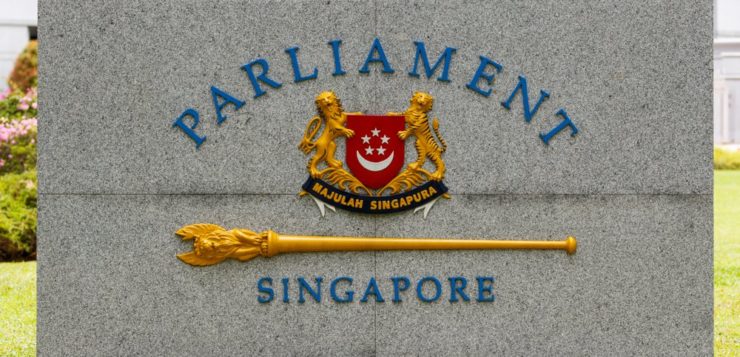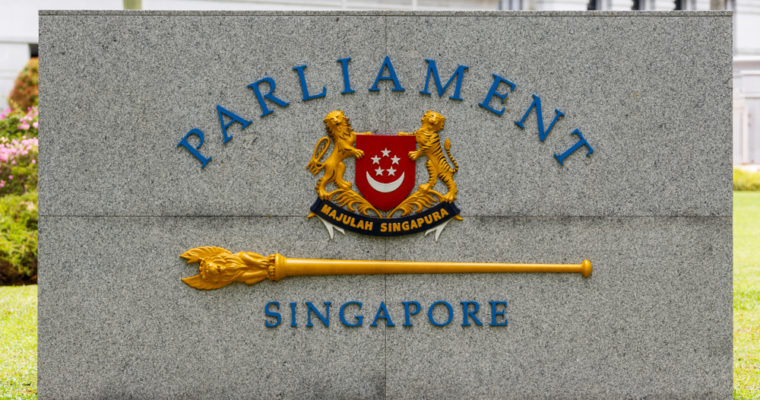CCN is expanding. Are you our next full-time journalist from the West Coast USA? Send us your CV and examples here.
A new bill which will impact electronic wallets and digital payment tokens such as bitcoin has been tabled in Singapore’s parliament.
The Payment Services Bill will place the providers of payment services that are not under the regulatory oversight of Money-Changing and Remittance Businesses Act and the Payment Systems Oversight Act under the umbrella of Singapore’s central bank, the Monetary Authority of Singapore (MAS).
This has come about following the growing usage of cryptocurrencies and the realization that the existing legislation does not cover them adequately.
Scope of Payment Services
Besides regulating cryptocurrencies, other activities that are set to be covered by the Payment Services Bill include both domestic and international money transfers and foreign exchange transactions.
“The payment services regulated under the Bill are: a) account issuance service; b) domestic money transfer service; c) cross border money transfer service; d) merchant acquisition services; e) e-money issuance service; f) digital payment token service; g) money-changing service,” said a statement from the MAS.
To offer the listed payment services, providers will be required to acquire licenses which will correspond to the risks that the payment services offered pose. Payment services will be classified as major payment institutions, standard payment institutions or money-changing institutions. The difference between a major payment institution and a standard payment institution is transaction volumes with the latter limited to transaction amounts not exceeding $3 million per month and electronic money float not exceeding $5 million.
Business Presence in Singapore
Among other conditions, applicants of the above licenses will be required to be companies (either incorporated overseas or in Singapore) that have a permanent place of business in the Southeast Asian country or at least a registered office.
With regards to the grace period offered to ensure compliance, the MAS will be stricter with payment services dealing in cryptocurrencies. While other payment service providers will have up to 12 months to comply once the bill is signed into law, providers of digital payment tokens will only have six months to ensure compliance.
As previously reported by CCN, the second consultation on the Payment Services Bill was launched last year in November by the MAS.
Singapore’s Central Bank Includes Bitcoin in Singular Regulation of Payments Services https://t.co/NkDk4kpGmr
— CCN (@CryptoCoinsNews) November 22, 2017
Then, the MAS hoped that the bill would cover more payment service providers while offering regulatory clarity to the sector:
“The new framework will expand the scope of regulation to include domestic money transfers, merchant acquisition and the purchase and sale of virtual currencies. Only payment activities that face customers or merchants, process funds or acquire transactions, and pose relevant regulatory concerns will need to be licensed.”
Featured image from Shutterstock.
Get Exclusive Crypto Analysis by Professional Traders and Investors on Hacked.com. Sign up now and get the first month for free. Click here.








